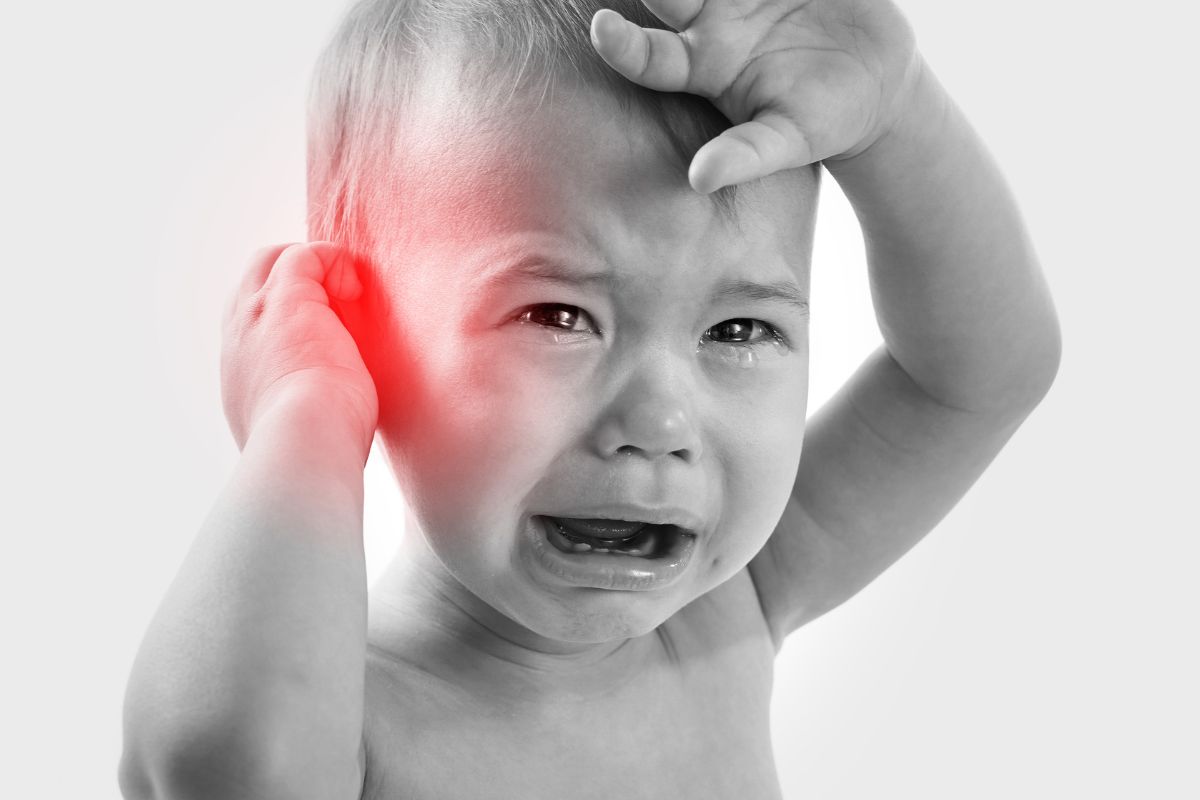
In the discourse presented here, Dr. Shree Rao provides insights into Labyrinthitis. She is the Best Doctor for Cochlear Implants.
Labyrinthitis is an inflammatory condition affecting the labyrinth, a delicate structure in the inner ear responsible for balance and hearing. It typically occurs due to a viral infection, causing symptoms such as vertigo, nausea, and hearing loss. This condition can be debilitating, impacting daily activities and overall quality of life. As an ENT specialist and renowned ear expert in Hyderabad, Dr. Shree Rao emphasizes the importance of early diagnosis and tailored treatment for individuals experiencing labyrinthitis. Seeking prompt medical attention from the best ENT doctor in Hyderabad is crucial for effective management of this condition and preventing complications.
Understanding the Inner Ear
The labyrinth, situated deep within the temporal bone, consists of the vestibular system and cochlea. This complex structure is vital for maintaining balance and spatial orientation. Within the labyrinth, the semicircular canals detect rotational movements, while the otolithic organs perceive linear acceleration. These sensory inputs are transmitted to the brain via the vestibulocochlear nerve, facilitating precise coordination of movement and equilibrium. Preserving the delicate labyrinthine structures is crucial for optimal vestibular function and overall well-being.
Causes of Labyrinthitis
Viral Infection: The Primary Culprit
Labyrinthitis commonly stems from viral infections, particularly those affecting the upper respiratory tract. Viruses such as the ones responsible for the common cold or flu can infiltrate the labyrinth, leading to inflammation and subsequent symptoms.
Less Common Causes to Consider
While viral infections are the leading cause, labyrinthitis can also result from less common factors. These may include bacterial infections, such as those associated with middle ear infections or meningitis. Additionally, head injuries, allergic reactions, and certain medications have been linked to labyrinthine inflammation, albeit less frequently.
Symptoms of Labyrinthitis

Labyrinthitis manifests through a range of distressing symptoms:
- Dizziness and Vertigo: Characterized by a sensation of spinning or the environment moving around you, often severe and incapacitating.
- Nausea and Vomiting: Common companions to dizziness and vertigo, causing further discomfort and disruption to daily activities.
- Hearing Loss and Tinnitus: Patients may experience temporary or permanent hearing impairment, along with ringing, buzzing, or roaring sounds in the affected ear.
- Other Symptoms: Labyrinthitis can also impact vision, leading to blurred vision or difficulty focusing. Concentration may suffer due to the overwhelming sensory disturbances, contributing to feelings of disorientation and anxiety.
Diagnosing Labyrinthitis
When you visit Dr. Shree Rao, renowned as one of the best ENT doctors in India and an esteemed ear specialist, he’ll start by taking a comprehensive medical history. Expect questions about your symptoms, their onset, and any recent illnesses. A thorough physical examination follows, focusing on the ears and balance system. Dr. Shree Rao will assess your eye movements, coordination, and posture, crucial indicators of labyrinthitis.
To confirm the diagnosis and rule out other potential causes, Dr. Shree Rao may order specific diagnostic tests. These may include a detailed ear examination using an otoscope to visualize the ear canal and eardrum. Hearing tests such as audiometry may be conducted to assess any changes in hearing function. Additionally, vestibular function tests can evaluate the balance system’s performance. These tests help Dr. Shree Rao tailor a precise treatment plan, ensuring you receive the most effective care for your labyrinthitis symptoms.
Treatment for Labyrinthitis
Labyrinthitis, whether viral or bacterial in origin, typically resolves on its own with time and supportive care. The primary goal of treatment is to manage symptoms and promote recovery while the body fights off the underlying infection.
Tackling Viral Labyrinthitis: Time, Rest, & Symptom Management:
For viral labyrinthitis, the cornerstone of treatment is rest and allowing the body’s immune system to combat the infection. Adequate hydration and maintaining a balanced diet can aid recovery. Managing symptoms such as dizziness, nausea, and vomiting may require medications like antiemetics to alleviate discomfort. Patients are advised to avoid sudden head movements that can exacerbate vertigo.
Medication Options: When Additional Symptom Relief is Needed:
In some cases, medications may be prescribed to manage severe symptoms. Antihistamines or vestibular suppressants can help alleviate vertigo and dizziness. Corticosteroids may be recommended to reduce inflammation and swelling in the inner ear, speeding up recovery. However, their use is typically reserved for cases with significant symptoms or complications.
Treating Bacterial Labyrinthitis: The Role of Antibiotics:
Bacterial labyrinthitis is less common but more serious, requiring prompt medical attention. Treatment often involves a course of antibiotics to eradicate the bacterial infection. The choice of antibiotic depends on the specific bacteria causing the infection and may be guided by culture and sensitivity tests. In addition to antibiotics, supportive care to manage symptoms such as pain, fever, and nausea is essential for patient comfort and recovery.
Overall, treatment for labyrinthitis focuses on alleviating symptoms, supporting the body’s natural healing process, and preventing complications. Patients should follow their healthcare provider’s recommendations closely and seek medical attention if symptoms worsen or new symptoms develop.
Outlook and Recovery
Most cases of labyrinthitis resolve within a few weeks to months, with symptoms gradually diminishing over time. During recovery, patients may experience fluctuations in symptoms, including periods of improvement followed by temporary setbacks. It’s essential to be patient and allow the body to heal naturally.
However, in some instances, labyrinthitis may persist, leading to long-term impacts on balance, hearing, and overall quality of life. Chronic symptoms may require ongoing management and lifestyle adjustments to cope with any residual effects. Regular follow-up with a healthcare provider is crucial for monitoring progress, addressing lingering symptoms, and adjusting treatment as needed to optimize recovery outcomes. With proper care and management, many individuals can regain normal function and resume their daily activities without significant limitations.
Conclusion
If you’re experiencing persistent dizziness, don’t delay seeking help. Reach out to an experienced ENT specialist like Dr. Shree Rao, known as one of the best ENT specialists in Hyderabad, for comprehensive evaluation and treatment. As an expert ear infection doctor, Dr. Shree Rao can provide personalized care tailored to your specific needs, helping you find relief from labyrinthitis symptoms and regain your quality of life. Don’t let dizziness disrupt your daily activities any longer. Take the first step towards better health by scheduling an appointment with Dr. Shree Rao today. Your journey to improved balance and well-being starts here.

Why consult EarSurgeon, Dr. Shree Rao?
Dr. Shree Cuddapah Rao is acclaimed as one of the best pediatric ENT specialists in Hyderabad. With 10+ years of deep domain experience in the field of ENT, she is the director at Dr. Rao’s ENT Super Specialty Hospital. She underwent specialized training in Rhinoplasty / Facial Plastic surgery at Singapore General Hospital, Singapore. She also underwent advanced training in cochlear implant surgery under Padmashri Dr. Milind V Kirtane and had a Fellowship in a cochlear implant. Having performed over 200 successful cochlear implants for patients worldwide, Dr. Shree Cuddapah Rao is also the recipient of several prestigious accolades in the domain of ENT. Dr. Shree Rao is one of the best ent doctor in hyderabad, to book an appointment click here.
Are you looking for
then you have landed at right place!







